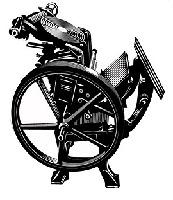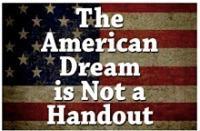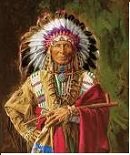- Posts: 5758
- Thank you received: 40
5-4: SUPREMES EXTEND GUN RIGHTS NATIONWIDE
- PrintSmith
-

- Mountain Legend
-

I would say that this ruling is consistent with the activist rulings generally termed selective incorporation, but I wouldn't agree that the logic upon which it, and the others like it, has been based rises to the level of rational.JMC wrote: I said in this case The SC ruled in a rational way. The founders , IMO, were way smarter than you or me. They never would have boxed in the process. Brilliance to know that the generations that followed them would add not blindly follow. Give some credit to the great Americans that improved this country after the founders ( Jackson, Lincoln,Roosevelt 1 and 2,Kennedy and yes even Reagan)
And the founders were indeed a gathering of great minds - which makes our disassembly of what they built all the more egregious in my mind. I find your choice of "great" Americans an interesting lot JMC. Jackson, a president that refused to enforce the Supreme Court decision in which they said that the state of Georgia lacked the ability to remove the Cherokee nation from their lands that ultimately led to the "Trail of Tears" under Van Buren. FDR, who, along with a filibuster proof Congress of Democrats, threatened to stack the Supreme Court with 4 new justices if they kept overturning his unconstitutional "New Deal" legislation which gave rise to the phrase "A Switch in Time Saved Nine". Ironically, it was after this threat was issued that the court ruled in favor of the Social Security Ponzi mere months after overturning another piece of legislation that was nearly identically financed - a ruling that haunts us to this day as it is used to support other legislative acts which usurp the liberty of the people.
Let's face it folks - the founders intended for the bulk of the power to be vested in the states' and not the national government. The 2nd Amendment, as originally written, was only applicable to the federal government and the state governments were free to decide whether or not to let the citizens of that state keep and bear arms. That was well understood by everyone until the passage of the 14th Amendment. The 1873 Slaughterhouse decision reaffirmed this when it said that the privileges and immunities clause only applied to the privileges and immunities covered by the Constitution as a citizen of the nation but that it did not extend to protection from actions by the states. A state could not, for example, pass a law that prohibited a black man from owning a firearm while allowing a white man to own one, but it could pass a law that said neither, or both, were permitted to own one. Equal justice under the law meant that laws must be color blind, but it did not protect a national citizen from having a state prohibit the ownership of a firearm. The federal government was prohibited by the 2nd Amendment from legislating an infringement upon the ability to keep and bear arms (which they have consistently violated), but it is only the previous actions of activist courts which extended the prohibitions enshrined in the Bill of Rights upon the states that opened the door to yesterdays ruling. It is consistent with the previous decisions of the courts, but all of them, IMNTBHO, are at odds with the original intent of the Constitution and the Amendments that have since been added.
Please Log in or Create an account to join the conversation.
- cydl
-

- Mountain Legend
-

- Posts: 1098
- Thank you received: 20
I believe one should not have the right to stroll down the 16th St. mall with an RPG. Or cruise down the street in a tank. Although I once saw a great deal on a Ural w/sidecar and .50 cal (decommissioned -- damn!) that I sorely wanted to use as a commuter vehicle. :woo hoo:
Please Log in or Create an account to join the conversation.
- BearMtnHIB
-

- Mountain Legend
-

- Posts: 2464
- Thank you received: 0
If one state is left the power to do so- then all the states could do so. What value would the 2nd have to any citizen and his rights to protect him/herself from the threat of tyrannical government? Would Jefferson go along with that notion?
If any state can legislate away the 2nd - then how about the first? Would it also be possible for every state to outlaw free speech? Would the founders support the states right to arrest citizens who's speech was offensive to the state?
It's obivious to me that this is not the case - and the intent was to provide these rights to all citizens anywhere in the country, regardless of what state or city they live in.
If they left power to the states - it was on issues not covered by the constitution. That would be my understanding. If I'm wrong about that - I'm quite sure that they would have amended the mistake themselves.
Please Log in or Create an account to join the conversation.
- PrintSmith
-

- Mountain Legend
-

- Posts: 5758
- Thank you received: 40
They might not have been in favor of it, but neither did they presume that a citizen of the state of Pennsylvania would have any power over the citizens of the state of Virginia, or their laws. IIRC, when the Constitution was written 9 of the 13 states had in their state constitutions, as Colorado does today, language which prohibited the state from barring private ownership of arms. But the founders acknowledged that it was decision that each state had the power to decide. There were laws regarding the storage of arms and the powder and ammunition for those arms as well. IIRC, it was illegal in the city of Boston to have a loaded firearm in a residence. Granted the black powder was significantly more volatile than the brass cartridges we use today, but at the time the Constitution was adopted there were state and local laws regulating ownership and storage of arms.BearMtnHIB wrote: PrintSmith - do you think that the founding fathers would be in favor of a state (or all the states for that matter) banning ownership of firearms?
Jefferson wrote, "The two enemies of the people are criminals and government,so let us tie the second down with the chains of the Constitution so the second will not become the legalized version of the first." The Constitution is a document which was supposed to chain the federal government from usurping the power of the sovereign states. What the Constitution addresses is the power of the federal government and the restrictions that were placed upon it. It empowered the federal government to be supreme only in certain areas, the states were supreme in all the rest. When the 2nd Amendment was added, it was a restriction placed upon the federal government alone. The Anti-Federalists were the folks who insisted upon the Bill of Rights to ratify the Constitution and they wanted to be sure that the federal government had no authority over the people to keep and bear arms.BearMtnHIB wrote: If one state is left the power to do so- then all the states could do so. What value would the 2nd have to any citizen and his rights to protect him/herself from the threat of tyrannical government? Would Jefferson go along with that notion?
The best answer I have for you here Bear is that you must remember that most of the states had an established religion at the time the Constitution was ratified. Thus it is clearly understood that the prohibition against the establishment of a religion, and all of the other rights contained within the 1st Amendment, and the entire Bill of Rights, were prohibitions levied upon the federal government alone. Massachusetts, for example, required every citizen of that state to belong to, and pay taxes to, a church up until 1833. While it did not have an official denomination as a state church that all citizens were required to help support (as Connecticut did until 1818) it was established that everyone had to belong to and help support a church. It wasn't until 1947, in Emerson v Board of Education, that the Supreme Court ruled that the 14th Amendment forbid the establishment of religion by an individual state as well as by the federal government. This was the beginning of the selective incorporation actions by the Supreme Court which has led us to where we are today with regards to federal power and the loss of state's rights.BearMtnHIB wrote: If any state can legislate away the 2nd - then how about the first? Would it also be possible for every state to outlaw free speech? Would the founders support the states right to arrest citizens who's speech was offensive to the state?
Obvious only if you believe that the 14th Amendment broadened the power of the federal government over the states in the union as the Supreme Court has ruled. In the 1833 decision of Barron v Baltimore, the Supreme Court, under Chief Justice Marshall IIRC, ruled that the Bill of Rights provided "security against the apprehended encroachments of the general government—not against those of local governments." and thus the law which prohibited the distribution of abolitionist literature was upheld, a clear violation of the freedom of the press if the 1st Amendment indeed restricted the state as well as the federal government.BearMtnHIB wrote: It's obivious to me that this is not the case - and the intent was to provide these rights to all citizens anywhere in the country, regardless of what state or city they live in.
Remember it was the Anti-Federalists who insisted that the amendments which became known as the Bill of Rights be added to the Constitution. Federalists such as Madison and Hamilton, chief authors of the Constitution, felt initially that no such amendments were necessary. The Anti-Federalists wanted to insure that the federal government was sufficiently chained that it could not interpose itself into the business of the sovereign states and become what, for all practicable purposes it has anyway, an entity with unlimited authority and power over the sovereign states and the people. They were wise enough to realize that one monetary unit was necessary for all the states, that there had to be an arbiter of disagreements between the states to avoid a war between Virginia and its neighbors, that the states would have greater financial muscle and less disagreements if there was one trade agreement with France instead of 13 separate ones and that it would be a good idea if New York couldn't declare a war by themselves on a nation that could ultimately end up involving the other 12, but they in no way intended to establish a central government with ultimate power over all of them. The War for Independence ended in 1783, the Constitution was written in 1787 and ratified in 1989, the Bill of Rights was ratified in 1791. They had just shed a great amount of blood and treasure to escape from the tyranny of a government which had authority over all of them, they were not about to create another one that they had to live under by their own hand.BearMtnHIB wrote: If they left power to the states - it was on issues not covered by the constitution. That would be my understanding. If I'm wrong about that - I'm quite sure that they would have amended the mistake themselves.
Please Log in or Create an account to join the conversation.
- BearMtnHIB
-

- Mountain Legend
-

- Posts: 2464
- Thank you received: 0
As you may have guessed - I am an originalist. The reason is because I have seen how government uses unique moments in time to nibble away at the original intent of the bill of rights.
They twist it - garble it up - ignore what the original authors fully intended, and modify it in ways that are 180 degrees from what it was ment to be based not upon the original intented purpose, but upon personal political biases or alternate agendas. I see the destruction of our rights - one nibble at a time, one day after another.
Lets just look at Jefferson and Hamilton and Washington's words for a second.
Washington said
“When firearms go, all goes. We need them every hour.”
He also said
"The very atmosphere of firearms anywhere and everywhere restrains evil interference - they deserve a place of honor with all that's good"
Hamilton said
"The best we can hope for concerning the people at large is that they be properly armed."
Jefferson said
"No free man shall ever be debarred the use of arms. The strongest reason for the people to retain the right to keep and bear arms is, as a last resort, to protect themselves against tyranny in government"
Ok - so I'm guessing that you can get the jist of what they are thinking, that the original intent here is not to keep guns away from Americans.
Knowing that the federal government uses the threat to withold money from states in order to get them to pass laws according to the federal will, aka 55mph speed limits, DUI laws, school funding etc..., what would stop a federal government from forcing every state to enact laws against the first and second amendments? Nothing if what you say is correct.
If Jefferson were brought back to life - in a world where every state were forced to enact a total firearms ban and additionally - laws which jail political speech - do you think he would go along with this and say to himself....
Because it was the states or local governments who passed these laws - I'm ok with banning guns and speech.
OR - do you think he would throw his arms into the air and demand that this injustice be corrected with language that extended the federal rights to all the states and local governments.
Because if you are correct - then the Chicago gun ban was indeed constitutional. The minority court opinion would have been the correct one.
I for one - assume that the authors intended for free speech and the right to bear arms to apply to "every free man" as Jefferson states, and to "the people at large" as Hamilton suggests, and that "We need them every hour" as Washington professes.
Why would they be for federal government protection, but give up that ideal where and when it applies to states and local government? My answer would be that the intent here applies to all citizens - at all times- wherever in the USA they happen to find themselves.
But I'll look into it.
"Experience should teach us to be most on our guard to protect liberty when the government's purposes are beneficient... The greatest dangers to liberty lurk in insidious encroachment by men of zeal, well meaning but without understanding."
-- Supreme Court Justice Louis Brandeis
Please Log in or Create an account to join the conversation.
- PrintSmith
-

- Mountain Legend
-

- Posts: 5758
- Thank you received: 40
The Anti-federalists were the ones who insisted upon a Bill of Rights being incorporated into the federal Constitution consisting of the same rights that were incorporated by the various state charters and constitutions. They reasoned that if the people felt it necessary to enshrine these rights in their individual state constitutions, the protection of those rights should also be enshrined in the proposed federal Constitution or they would vote against its ratification and keep what they had, the Articles of Confederation and Perpetual Union. This is further support for the argument that the Bill of Rights was intended to chain the federal government from having dominion over the states except for the specific instances mentioned in the Constitution. People in many of the states wanted to be certain that since the Constitution established the laws of the federal government as being superior to the laws of the states that the rights enshrined in their state constitutions were mirrored in the federal one so that it wouldn't be possible for the federal government to effectively nullify the rights that they possessed at the adoption of the Constitution. It hasn't stopped the feds from doing just that, but they made a valiant effort to prevent it from happening.
I use existing laws within the various states at the time the Constitution was ratified that are in opposition to the principles of the 1st Amendment, and the continuance of those laws into the next century, to support my position that the Constitution didn't chain the state governments, only the national one.
I must add that, my memory not being what it once was, I confused the Barron v Baltimore case with the laws in the southern states that banned distribution of abolitionist material, which laws were allowed in part because of the 1833 ruling issued in that case. I did, however, have the ruling that the Marshall court issued quoted correctly in regards to the security provided for in the Bill of Rights not being applicable to the state governments.
FWIW, Jefferson had some very serious difference of opinion with Marshall on many subjects, this one included, but then again, Jefferson had serious problems with Federalists in general. Most of them he dismissed as monarchists, which accurately described Alexander Hamilton's desire to see a President and Senate elected to lifetime positions. Hamilton was quite the schemer in politics in his day. While I recognize his contributions to the Constitution, there are quite a few things about the man and his actions that I have grave reservations about. It is quite possible, given the results of some of my research, that Hamilton did envision an all powerful central government with supreme authority over the states in all matters as he helped to craft the Constitution and that the Bill of Rights was indeed necessary to chain the federal government from grasping absolute power as the Anti-federalists charged. Chief Justice Marshall was also a High Federalist, elevated to his place on the Supreme Court by President Adams and confirmed as one of the last acts of Senate controlled by Federalists before the Republican party assumed their majority following the elections in 1800. Which makes his rulings regarding the Bill of Rights being restricted to the federal government all the more interesting.......but I digress.
The Bill of Rights really does nothing more than enshrine the rights existing in several of the states' constitutions in the national one as well, but since the Constitution establishes the federal government, its powers and supposed limitations, any amendment to that document would, by default, really do nothing more than speak to the powers of the federal government, all other powers being reserved for the state or the people. The federal government, for example, didn't have the authority to grant suffrage to women until the states and the people granted it that authority in the 19th Amendment. There were a number of states in which women already enjoyed suffrage, but because the Constitution and the Amendments to it didn't grant the national Congress or the federal government the power to govern in that instance prior to the ratification of the 19th Amendment, the federal government had no authority to grant them suffrage in every state. Once the 19th was ratified, that changed. It specifically said that the amendment applied to the governments of the nation and that of the states, a practice which began with the 13th Amendment, which gives yet more weight to the argument that the original Bill of Rights referenced only the federal and not the state government.
Please Log in or Create an account to join the conversation.
- major bean
-

- Mountain Legend
-

- Posts: 2612
- Thank you received: 0
Regards,
Major Bean
Please Log in or Create an account to join the conversation.
- PrintSmith
-

- Mountain Legend
-

- Posts: 5758
- Thank you received: 40
That's why it is so important to remember that our federal government was never intended to be a powerful central government by the people who gave their ascent to the Constitution. They wanted an assurance that the new federal government would never be able to take away their arms to fight tyranny as their former monarch had attempted to do. They were not concerned that their state would deprive them of that right, they were concerned that a powerful central government would attempt to do that, which is also why they constitutionally prohibited the federal government from raising a standing army for any longer than 2 years and preferred to rely on their state militias to protect themselves and provide mutual aid to their fellow states within the union.
Please Log in or Create an account to join the conversation.
- RCCL
-

- Mountain Advisor
-

- Posts: 234
- Thank you received: 0
Our amendments are not up for decision, nor is their "intent" to be decided in a court of law when the intent is as clear as day.
The founding fathers were unclear about some things, like what "cruel and unusual punishment" is... but our right to bear arms is black and white. There's no grey area, and no reason why four justices should have voted against this. I don't care what political affiliation you are, you're either saying "yes, I ratify the constituion and uphold the law of our land" or "No, I don't care what the constitution says, I am ruling unconstitutionally".
Every justice that voted against this should be run off the bench on a rail.
Please Log in or Create an account to join the conversation.
- Tilt
-

- Mountain Advisor
-

- Posts: 229
- Thank you received: 0
rights to bear arms, but leaving it open for challenges at
lower level courts. Will it survive. :crossed:
Please Log in or Create an account to join the conversation.







